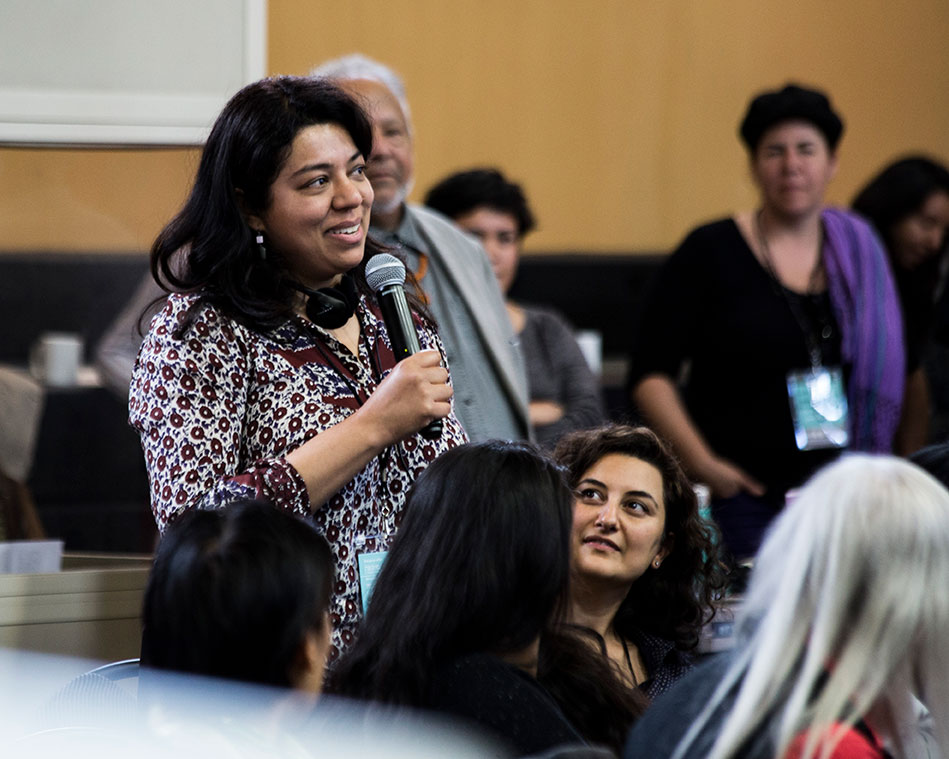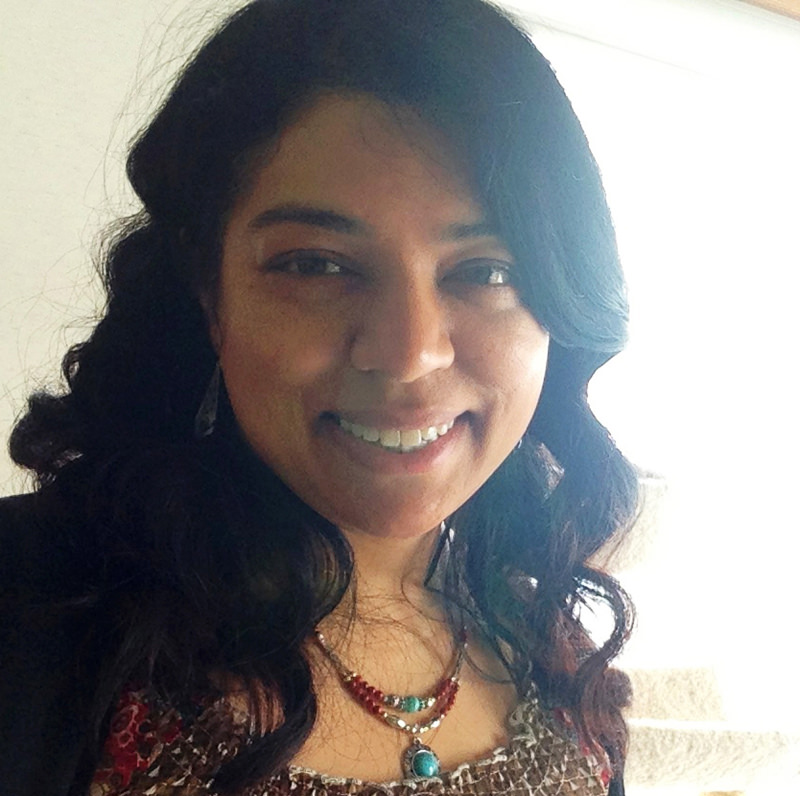At the first-of-its-kind Primary Colours/Couleurs primaires Indigenous and People of Colour artist gathering in 2017, I was honoured to co-facilitate the Muslim Screens session with journalist and filmmaker Saida Ouchaou.
 Nilufer Rahman at the PC/Cp Gathering 2017 on Lekwungen
Nilufer Rahman at the PC/Cp Gathering 2017 on Lekwungen
territory. Photo credit: Kirk Schwartz.
Filmmaking for me has been a way to share my lens as a Muslim, Bengali, Canadian woman of colour. In our Muslim Screens session we quickly reinforced the reality that being Muslim, just like expressing any other identity, is an extremely subjective experience. We cannot be boxed in to a set of behaviours or norms, which would, in fact, be oppressive. Orientalist narratives about Muslims are alive and well and have continued to flourish in the post 9/11 world. In this context, many Muslims have felt immense pressure to counter Islamophobic rhetoric and discrimination with positive narratives from Muslim voices. However, always being on the defensive and needing to constantly extol the virtues of their faith, Muslims often find themselves burdened with a responsibility much larger than any individual can bear. Not all Muslims want to be reduced to their faith identity. As much as one would like to present positive counter narratives of the “Muslim world,” it’s very hard to speak on behalf of 1.8 billion people. Furthermore, the rise of Islamophobia globally makes it extremely difficult to engage in much-needed critical discourse within Muslim cultures and societies where positive social change needs to happen. For example, how do you address patriarchy and sexism within Muslim communities when women wearing hijabs are being attacked on the street based on the way they look? Basically, it is tough to air your dirty laundry when you are desperately trying to impress and reassure people, in order to avoid worsening the prejudice, discrimination, and violence that is already directed towards you.
Within this catch-22, Muslim artists struggle to express our subjective voices. Funding opportunities are opening up that promote Muslim filmmaking and art, but they are often in the context of combating Islamophobia. While I see the need for this, I also see a problematic pattern emerging where narratives from Muslim and ally voices are also stereotypic, albeit in a positive sense. While this reactionary representation is providing some balance in our very polarized society, it is also overshadowing the layered and nuanced voices and experiences that in the long term will be more effective in carrying critical discourse forward—not just in mainstream societies but within Muslim communities as well.
As a Muslim filmmaker in today’s fractured world, I admit to feeling the obligation to represent. To me this means sharing stories that reflect authentic experiences and promote empathy without diminishing negative realities in the world. I would like to see funders supporting films beyond the films themselves. We need help in distribution strategies to communities, educational institutions, service sectors, governments, and online platforms, where our films can be shared, critically discussed, and used as tools towards a more nuanced understanding of Muslim diversity and the historical, socio-economic, political contexts worldwide that have shaped our modern fractured yet ever-interconnected world.

Nilufer Rahman is an award-winning Winnipeg-based independent filmmaker. In 2007, she interned on the set of CBC’s hit television sitcom, Little Mosque on the Prairie. Through their company, Snow Angel Films, Nilufer and her sister Saira Rahman have produced well-received films such as Arctic Mosque and Letter to a Terrorist. As a Canadian Muslim of Bangladeshi heritage, Nilufer views film as a powerful tool to share diverse voices, facilitate dialogue and motivate positive social change.